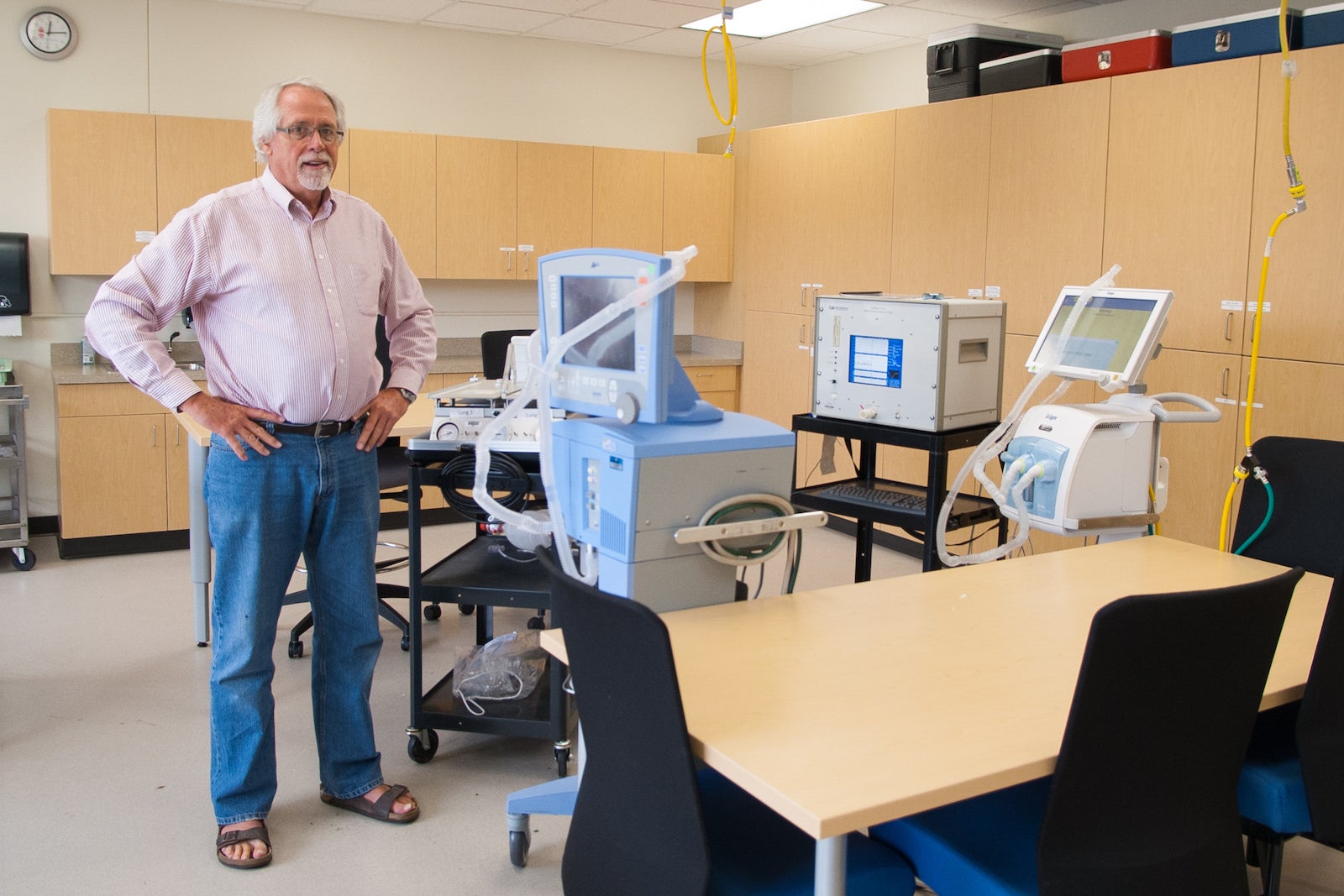
Boise State faculty in the Department of Respiratory Care are acting fast to prepare non-intensive care unit (ICU) clinicians across the country during the COVID-19 pandemic.
In March, an anesthesia services contractor for Saint Alphonsus Regional Medical Center terminated contracts with local nurse anesthetists – referred to as CRNAs – after elective surgeries were cancelled because of the pandemic. Kris Carter, a Centers for Disease Control and Prevention (CDC) epidemiologist stationed at the Idaho Division of Public Health, contacted the Department of Respiratory Care to ask if CRNAs could be trained to provide respiratory care for COVID-19 patients in anticipation of shortages of respiratory therapists.
Interim department chair Joe Coyle worked with Lonny Ashworth, a respiratory care professor, to quickly develop a variety of educational materials like video tutorials, instructions and documents to equip CRNAs with the tools to assist with ventilator management and care for COVID-19 patients.
“Those who are in the trenches in New York City and Detroit and New Orleans are fighting the enemy every moment that they’re awake,” Coyle said. “They don’t have the time to stay up with the evolving knowledge that’s coming out.”
Their tutorials don’t just apply to local CRNAs.
“This is not Idaho-specific training and could be used in other states, which are seeing an increased demand for staff who can provide intensive care and respiratory care for patients on ventilators in the ICU,” Carter said.
Carter has actively promoted the training modules with her counterparts throughout the nation. The Idaho Division of Public Health and the Idaho Board of Nursing are disseminating it to their health care partners.
“The situation is evolving so rapidly,” Coyle said. “So we will be updating the modules as new best practices are uncovered.”
Last month, the Department of Respiratory Care shared 14 state-of-the-art ventilators and other equipment with local hospitals to combat shortages.